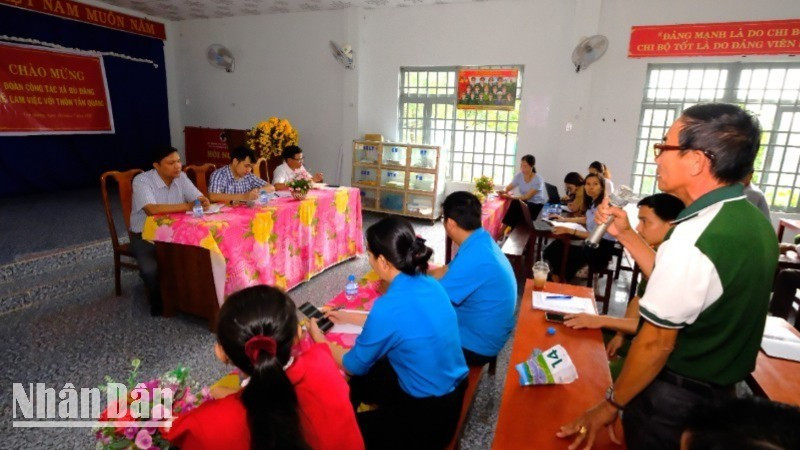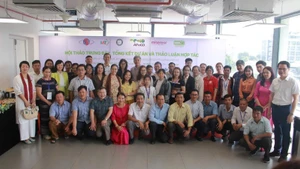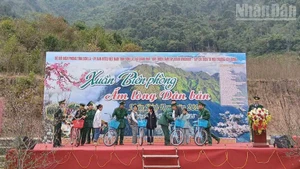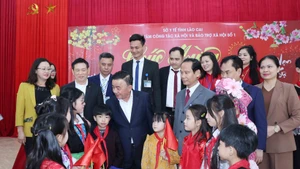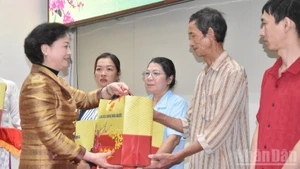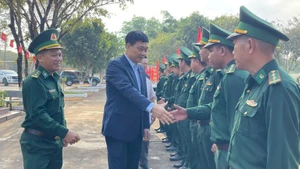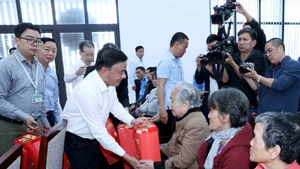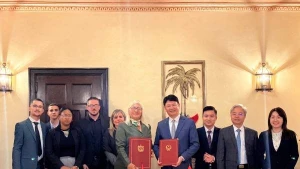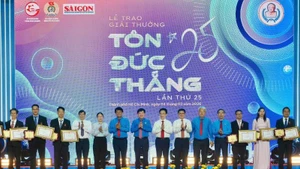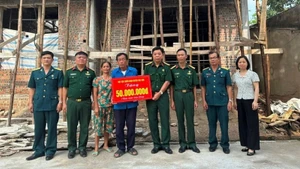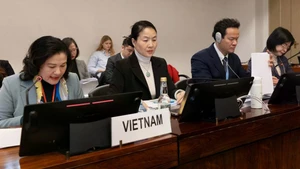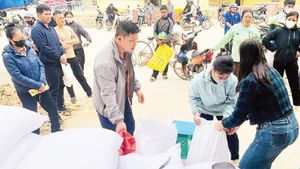After only one month of operating the two-tier local government model, people’s satisfaction is the most important measure, thereby narrowing the gap between “Party’s will” and “people’s heart”, increasing social trust, and consolidating the great national unity bloc.
Serving the people
After the two-tier local government model was put into stable operation, many localities in Dong Nai province have implemented creative and flexible ways to better serve the people. In particular, many communes and wards have strongly applied information technology, deployed high-level online public services, and shortened the time to handle administrative procedures. Some places have established “government service at home” groups to support the elderly and disadvantaged people in completing paperwork. There are also places where mobile public administration service centres are arranged to go to villages and hamlets to serve the people and receive their feedback for quick and transparent handling.
After one month of operation, the mobile public administration service centre of Bu Dang commune, Dong Nai province has come to 3 villages and hamlets to serve the people. Thereby, it has received and resolved more than 100 records related to the fields of land, justice, environment, etc. In addition, at the sessions serving the people in the villages and hamlets, the professional department also consulted and guided hundreds of people on the process of resolving administrative procedures in various fields.
After one month of operation, the mobile public administration service centre of Bu Dang commune, Dong Nai province has come to 3 villages and hamlets to serve the people. Thereby, it has received and resolved more than 100 records related to the fields of land, justice, environment, etc.
In mid-July, the People’s Committee of Bu Dang Commune, Dong Nai Province organised a meeting to listen to opinions and recommendations of the people after the merger in Village 1, at the same time, the Mobile Public Administration Service Centre of the commune also organised to serve the people. It is known that this is the village with the largest number of ethnic minorities in Bu Dang Commune.
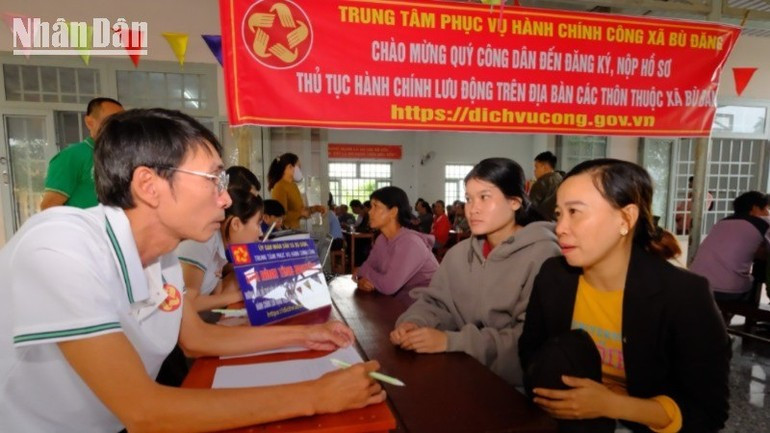
After hearing that the officials came to meet and discuss with the people, people filled the hall of the village cultural house from early morning. At the consultation and guidance desks for the people as well as the document reception department of the commune's mobile public administration service center, people also received a lot of attention from the people. In particular, the issue that people are most concerned about is land, such as: procedures for granting, exchanging, and separating land plots; the granting of overlapping land or land in the field is different from the book... In addition, people are also interested in completing personal documents and integrating into VNeID...
The issues that people are concerned about are guided and resolved by the officials in charge of the area of Bu Dang Commune in a reasonable and reasonable manner.
For example, Dieu Thi S Rut, whose land area was granted in an overlapping area, was guided by the officials in charge of the procedures according to regulations. Dieu Thi S Rut, village 1, Bu Dang commune, Dong Nai province, said: “My family has been granted a land use right certificate for a long time, however, the land on the certificate is different from the actual land. Therefore, I came here to ask the staff to guide me through the procedures. Here, the staff guided and helped me complete the measurement request form and the adjustment request form. My problem was basically resolved initially.”
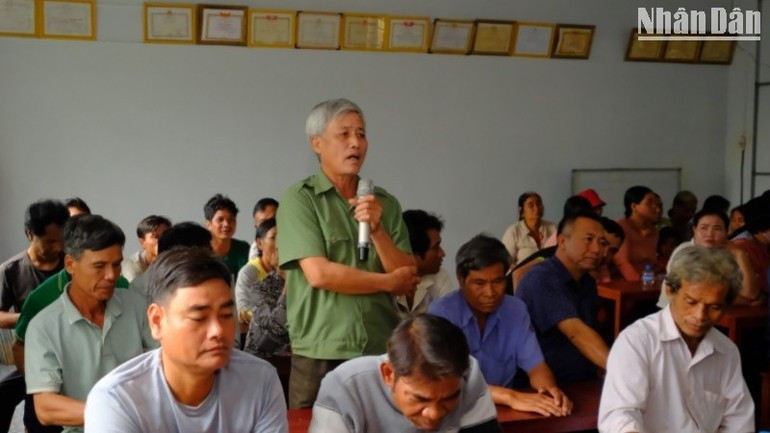
“I see that the new government operates very close to the people, helping people solve difficult administrative procedures. This is truly a government serving the people. I hope this spirit will continue to be promoted so that people can be served better and administrative procedures will be faster,” Dieu Thi S Rut said excitedly.
Bui Thi Van in Village 1, Bu Dang Commune, Dong Nai Province tried to install VNeID herself many times but could not do it. When she arrived at the Mobile Public Administration Service Centre of Bu Dang Commune, the staff guided her to complete it that same morning.
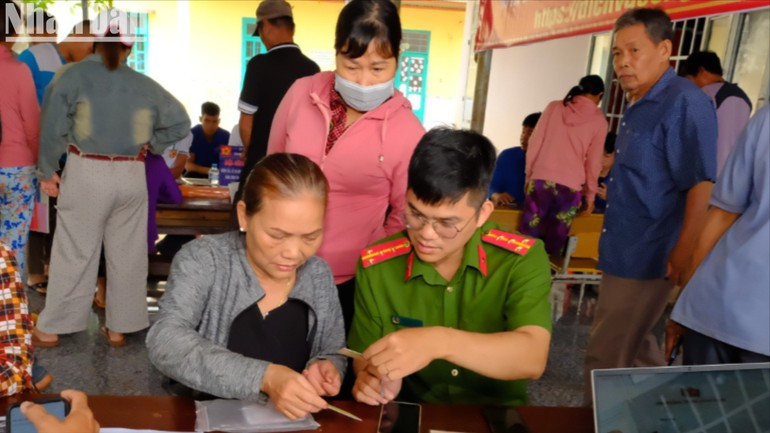
Bui Thi Van said: “Previously, the digital transformation team also guided me to install VNeID, but I tried many times yet failed. Today, the mobile public administration service centre of the commune came to village 1 to serve the people, I went to ask the officials to install VNeID. In just a few minutes, the officials pointed out the reason why I could not install VNeID because my phone number was not in my name. In just the morning, I registered my own phone SIM and installed VNeID. Thank you to the officials for coming to the village to help people solve difficult problems, problems that people do not understand.”
Listening to the people
Also in village 1 (Bu Dang commune), the commune and village officials met and listened to the people's opinions after the 2-tier local government came into operation. In the morning alone, there were 30 comments from the people on issues such as environmental sanitation, rural transportation, social security, improving the capacity of village management boards, economic development orientation, etc.
Party member Tran Ngoc Huu (village 1, Bu Dang commune, Dong Nai province) said: “The country is entering a new era with a new government system, so the capacity of cadres also needs to be renewed. Therefore, I am interested in the issue of rejuvenating the cadre team, especially village cadres, to keep up with the general development of the country. We need new cadres, young cadres, talented cadres to contribute more, help the people more. In addition, there needs to be a channel for people to contact and reflect on issues at the department, thereby promoting the spirit of people’s supervision”.
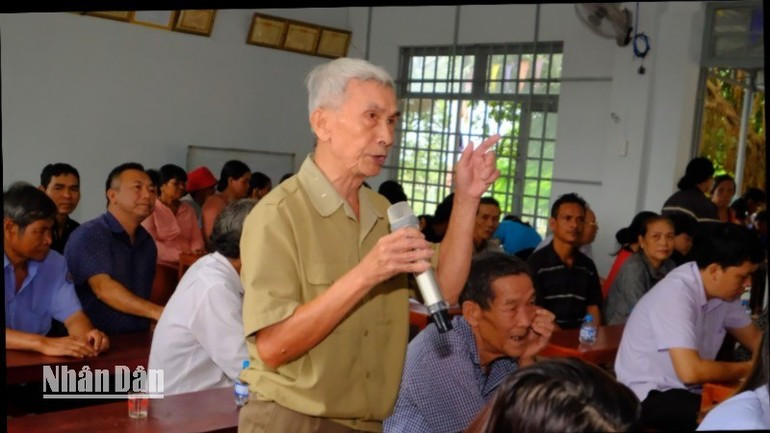
“Village 1, Bu Dang commune, has a large land area, good climate, and abundant water resources, but for a long time, the people have been poor. Therefore, it is necessary to have a land use plan and a direction for crop development to increase the value of the land and increase people's income,” added Tran Ngoc Huu.
Tran Xuan Hien, Vice Chairman of the People’s Committee of Bu Dang commune (Dong Nai province) said that after 3 weeks of the commune leaders and the Mobile Public Administration Service Centre going to the grassroots to listen to opinions and serve the people, we have received and resolved about 100 files at the grassroots level; guided and answered hundreds of people and received dozens of opinions and recommendations from the people. For opinions and recommendations within their authority, the commune leaders responded directly to the people. For opinions and recommendations that the commune leaders do not fully understand, specialised agencies will be sent to villages and hamlets to grasp the situation and have specific reports to resolve for the people.
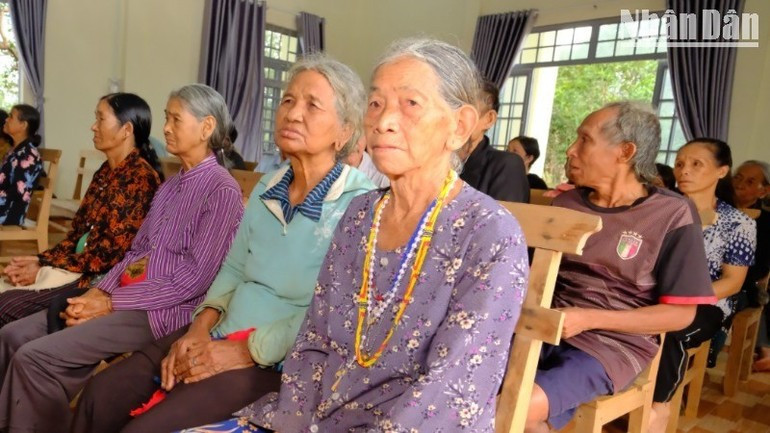
Dak Nhau is a commune in a remote, ethnic minority area of Dong Nai province. There are 24 ethnic groups living together, of which ethnic minorities account for about 50% of the population. Since the merger of the province, the leaders of Dak Nhau commune have gone to each village and hamlet to meet with the people. Through listening to the opinions and aspirations of the people, they have built a development orientation for the locality.
Dieu Sa Ret, Secretary of the Party Cell of Dak Lien village (Dak Nhau commune, Dong Nai province), said that the inter-commune road of Dak Nhau and Kien Duc communes of Dong Nai and Lam Dong provinces was formed during the resistance war against the US imperialists. This route is considered the lifeline for transporting human resources and materials to the liberated area of Loc Ninh, supporting the southern battlefield. Previously, the province also invested in paving the road, but now it has seriously degraded, making it extremely difficult for people in the village to travel to the commune.
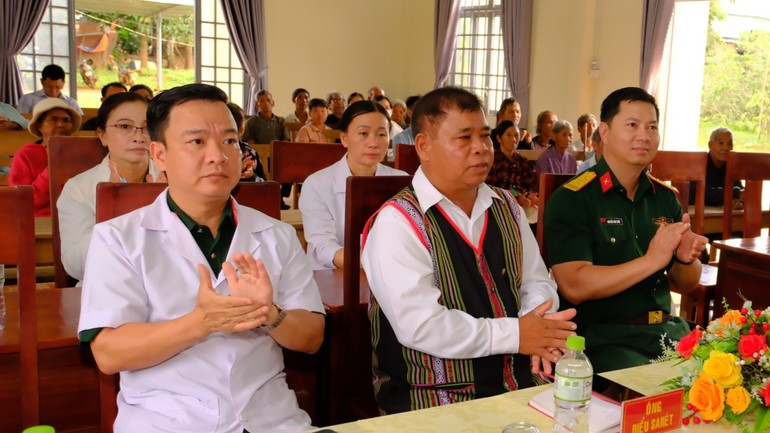
At the meeting with the leaders of the commune after the merger, Dieu Sa Ret proposed that the commune consider upgrading the road soon so that people can travel more conveniently. “The two-tier local government has come into operation and the decentralisation and delegation of power are clear. The people of Dak Lien village want the commune to prioritise resources to upgrade the road so that people can travel more conveniently,” Dieu Sa Ret wished.
Nguyen Trong Lam, Secretary of the Party Committee of Dak Nhau commune (Dong Nai province), said: In the recent period, Dak Nhau commune has invested about 500 billion VND to build rural infrastructure; thereby creating a breakthrough in infrastructure development in remote communes. In addition to rural transportation, schools are invested in building according to standards, fully equipped for children to study, play, and improve their morality, intelligence, physical fitness, and aesthetics. However, some roads are currently degraded, making it difficult for people to travel. In the near future, the province will decentralise investment projects and allocate funding sources, and the commune will consider investing in urgent roads, especially the road to Dak Lien village.
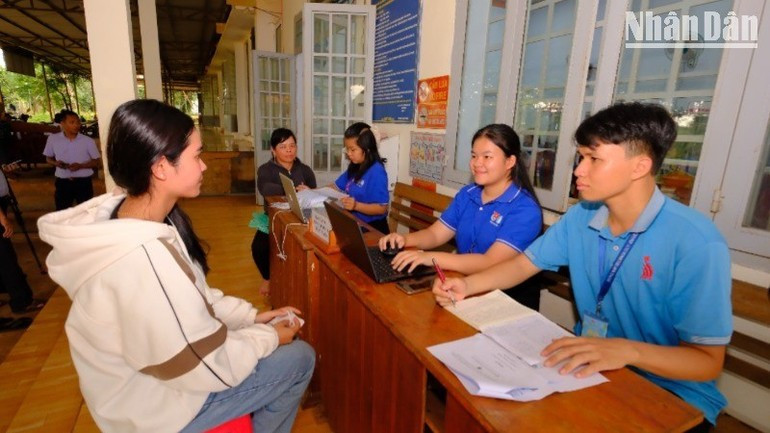
Although there are still many difficulties in operating a two-level local government. However, the initial steps show that the role of the government is close to the people, all policies and guidelines will be implemented more closely to reality, easily listening to and accepting people’s opinions and promptly adjusting to suit the aspirations and legitimate interests of the people. This is one of the actions to concretise Uncle Ho’s teaching: “Whatever is beneficial to the people must be done to the utmost, whatever is harmful to the people must be avoided at all costs”.
